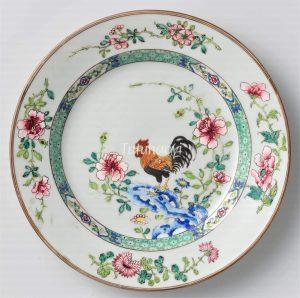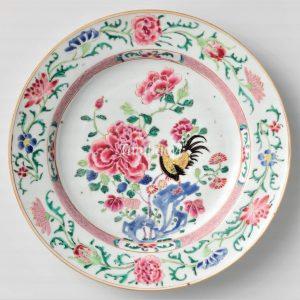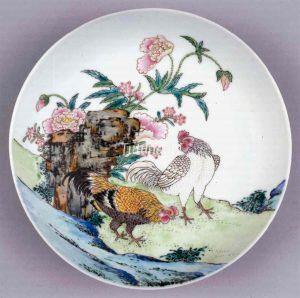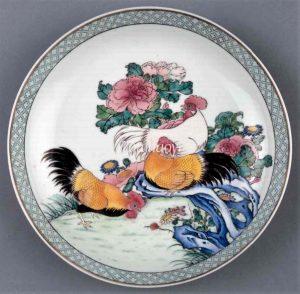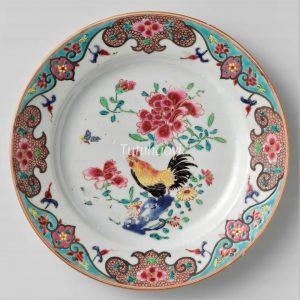May you do well in exams and enjoy wealth and prestige
功名富贵
© Tutuhaoyi.com owns the copyright of the description content for the images attached. Quoting all or part of the description content on this page is permitted ONLY IF ‘Tutuhaoyi.com’ is clearly acknowledged anywhere your quote is produced unless stated otherwise. (本页描述内容版权归Tutuhaoyi.com所有,转发或引用需注明 “Tutuhaoyi.com”, 侵权必究, 已注开源信息的条目除外。)
The Chinese phrase ‘Gong ming 功名’ for ‘scholarly honour or official rank’ is a pun on two Chinese characters ‘gong 公’ and ‘ming 鸣’.
‘Gong 公’ from ‘gong ji 公鸡’, the Chinese name for ‘rooster’, makes pun on the Chinese word ‘gong 功’; and ‘ming 鸣’, which is the Chinese word for ‘cock’s crowing’, is a pun on ‘ming 名’.
Peony has a nickname in Chinese as ‘fu gui hua 富贵花’, literally, the ‘flower of wealth and prestige’.
Thus, the combination of roosters and peony flowers in one picture in Chinese people’s eyes sends the message of wishing someone do well in civil-service examinations, and go on to enjoy a rich and prestigious life.
The design may also be referred to as ‘fu gui you qi 富贵有期’.
Related motifs:
Fig 1 & 2: porcelain plates with enamel colours, c.1725 – c.1749, courtesy of Rijksmuseum, Holland
Fig 3: porcelain saucer-shaped dish, early 18th century, courtesy of Sir Percival David Foundation of Chinese Art
Fig 4: saucer-shape porcelain dish, early 18th century, courtesy of the British Museum, London
Fig 5: porcelain plate with enamel colours, c.1800 – c.1899, courtesy of Rijksmuseum, Holland
